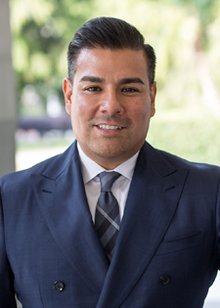This article needs additional citations for verification .(August 2007) |
| Insurance Commissioner of California | |
|---|---|
 | |
 | |
| Government of California Department of Insurance | |
| Style | The Honorable |
| Term length | Four years, two term limit |
| Inaugural holder | John Garamendi 1991 |
| Formation | Proposition 103 |
| Succession | Ninth |
| Website | www |
The California insurance commissioner has been an elected executive office position in California since 1991. Prior to that time, the insurance commissioner was appointed by the governor. The officeholder is in charge of the California Department of Insurance.
Contents
The current insurance commissioner is Democrat Ricardo Lara.
